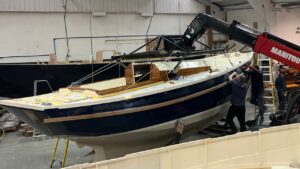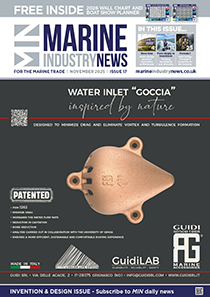Interview: Henri-Lloyd on relaunching its brand to the marine market
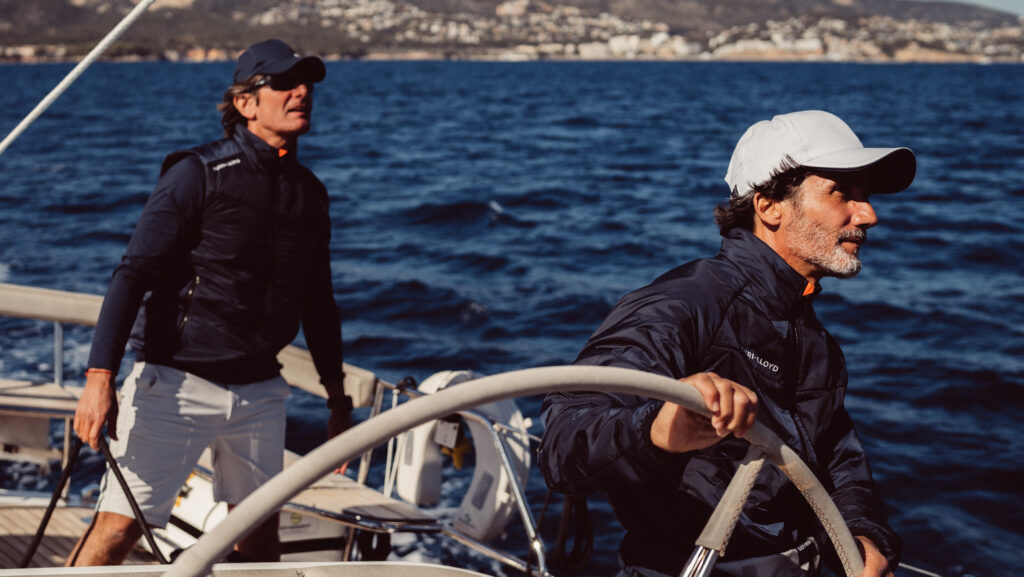
With the trade launch of its 2024 Yachting collection at METSTRADE last November, Henri-Lloyd (HL) is marking 60 years of sailing apparel innovation by implementing a new, forward-facing vision aimed at creating brand stability. Following a turbulent period under previous owners, Aligro UK, Henri-Lloyd plans to drive innovation with fresh impetus as it seeks to re-establish itself under new owners, Monte Rosa Capital, alongside its sister company Odlo, the Norwegian base layer specialist brand.
Henri-Lloyd is largely European-based, including over 70 employees at the company’s wholly owned factory in Brodnica, Poland – the hometown of original founder Henri Strzelecki. Strzelecki established the company in 1963 after moving to Manchester, England, with financing from Angus Lloyd. The fledgling ‘Henri-Lloyd’ quickly gained recognition for its innovative use of waterproof seams, Velcro and non-corrosive zips in producing waterproofs for sailing and mountaineering, and for supplying early sporting pioneers including Sir Francis Chichester and Sir Robin Knox-Johnston.

Today, the company has returned to its roots – there is a new head office in Manchester, with design taking place in Scotland and Italy, and development in Manchester. In Henri-Lloyd’s heydays Strzelecki was awarded an OBE in 1985, and the brand twice won the Queens Award for Export Achievement. Worn by legendary sailors, from Tracy Edwards’ Maiden crew to Sir Ben Ainslie, Henri-Lloyd led the way as an iconic British outdoors brand well into the 2000s.
Looking ahead to the next 60 years, it’s that heritage that Henri-Lloyd is once again drawing on, together with the Scandinavian ethos of Monte Rosa (from which it receives finance and logistics support) of ‘hurrying slowly’. That’s according to Norwegian Olympian and two-time Ocean Race skipper, Knut Frostad, who joined Monte Rosa’s board in 2022, bringing 18 years of expertise as CEO and president of the Navico Group, as well as CEO for three editions of the Ocean Race. Frostad says he is excited to “play an active role in getting this unique legacy brand back to a market leading position” but asserts “it’s important to approach things in the right order”.
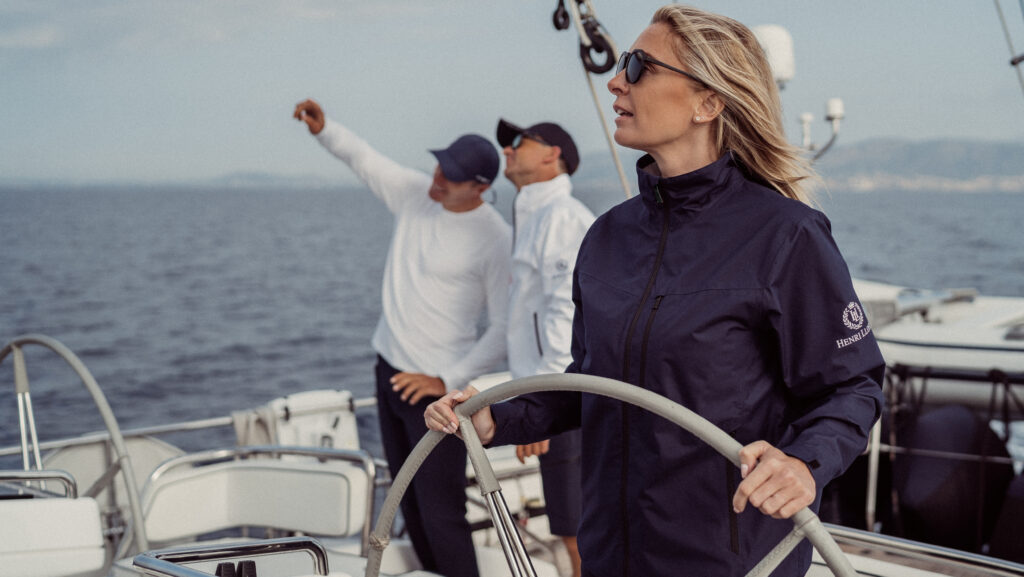
Driving this strategic growth plan is what CEO Graham Allen describes as “responsible performance”. Allen explains: “’Sustainability’ has become a much over-used word in recent years. We want to behave as responsibly as we can to minimise impact, but know full well that no industry can be fully sustainable; therefore the single most important thing we can do to drive sustainability in the marine industry is to make sure things last. Having Scandinavian owners means that ethos is hardwired in.”
Such environmental considerations place an emphasis on the need for high quality products, and the company is now implementing a streamlined model closely referencing its original DNA – a love of foul weather. Through its new range of highly durable offshore clothing, the company aims to grow through expanding market share within yachting; unlike some competitors, it is not targeting related or entry-level sectors, such as paddlesports, for instance.
With offshore yachting kit seen as the pinnacle standard within the sector, this focus underpins a deliberate ‘premium’ positioning.
Strategic mistakes
Henri-Lloyd’s strategic plan also takes into account lessons learnt after aggressive range diversification ultimately led to the company going into administration in 2018.
While Henri-Lloyd’s foray into fashion began as early as the 1980s, a growing tendency to favour fashion over functionality resulted in Henri-Lloyd’s authenticity as a technical brand being gradually undermined as the company and retailers were left grappling with excessive range creep.
When the company was subsequently bought by Aligro UK, the new owners believed a direct-to-consumer retail strategy would revive the ailing brand. Henri-Lloyd’s well-established global network of 150 retailers and distributors was shut down, limiting brand presence, and retail prices were slashed. With a technical range then centred almost exclusively on elite racing products, a significant proportion of consumers felt alienated, and the brand’s relevance diminished.
Now, using knowledge gained from that period to move forwards, along with input from Odlo and Monte Rosa, Henri-Lloyd says their 2024 Yachting collection is the result of a well considered strategy focussed on product quality and careful brand positioning. “Time spent as a direct to consumer retailer has increased our empathy and increased our understanding of the issues retailers face, particularly in holding large amounts of stock and in the uncertainties the supply chain encountered post-covid. We also appreciate the importance of sales resulting directly from stock availability. As a result, our new collection is much more streamlined,” explains Allen.
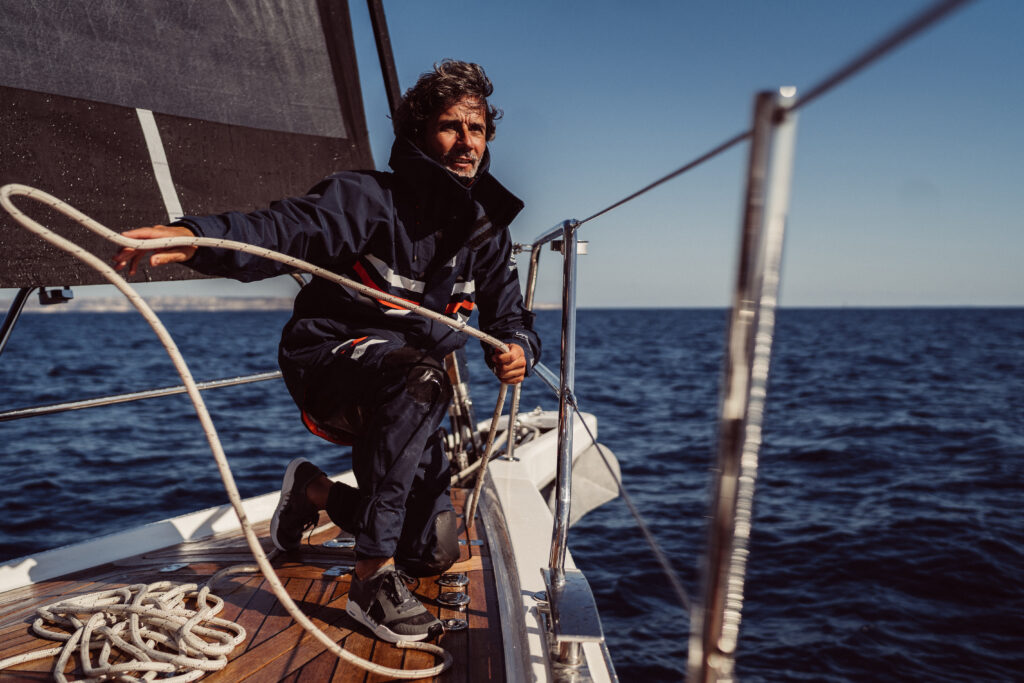
Reshaping the brand Henri-Lloyd has worked hard to re-establish trust with retailers and distributors, and Allen says that the response has been positive. Initiatives such as incorporating one pair of salopettes that can be paired with a number of different jackets has reduced the need to carry excessive stock. It’s a significant departure from the model the company previously adhered to. Removing the expectation on discounting – which Allen says challenges what was previously accepted as the industry norm – has also been well-received, further bolstering the range’s ‘premium’ positioning.
The collection now comprises a full offering of cruising garments, enabling the brand to re-establish relevance with the largest consumer group; Allen indicates this is some 80 per cent of the market. Henri-Lloyd’s design and development process is based across three locations in Manchester, Scotland and Italy, and partnerships such as that with the British SailGP team contribute to R&D.
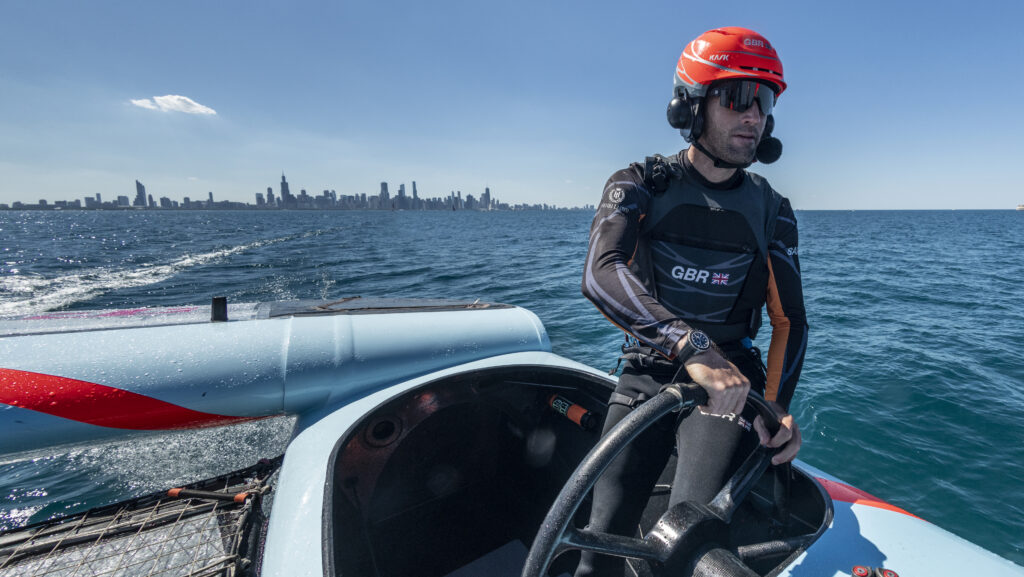
The new range’s aesthetic draws directly on the brand’s heritage – not only re-using familiar product names, but also incorporating past design features. The trademark stripes that debuted on the kit Dennis Connor wore when he won the America’s Cup in 1988 for the fourth time will be familiar to many. But that’s not to say the new collection lacks innovation. Far from it, according to Allen, who sees technological advance as fundamental to sustainability. With around 80 per cent of carbon involved coming from the production of technical clothing, ensuring longevity is imperative.
Advancing materials
Henri-Lloyd’s recent focus has been on advances in alternative materials; for example, replacing durable water repellent coatings with hydrophobic fabric that achieves the equivalent waterproofing using minimal chemicals. For this, the firm liaised closely with Toray of Japan, the premium fabric supplier that Henri-Lloyd has worked with for over 25 years. Allen hopes this approach to sustainability becomes more widely adopted across the marine industry, although he recognises the challenges facing small manufacturers, and therefore believes the onus is on higher output manufacturers – such as apparel companies – to lead the way. It’s a philosophy that Henri-Lloyd has experimented with in the past – launching the pioneering Blue Eco ‘infinitely recyclable’ range in 2009 to multiple DAME Awards.
Allen describes it as “ahead of its time”, but believes that the consumer is now more ready to pro-actively shop with such concepts in mind. The 2024 collection includes materials made from recycled bottles, and all packaging is home compostable. Describing the company’s fresh ethos as a “start-up mentality within an established legacy brand” Allen feels the outlook for this iconic British business is extremely positive. “Our emphasis is firmly on long term sustainability, and away from using price as a weapon,” he says. “Unlike some – largely opportunistic – business models in the immediate post-covid era, we have seen and learnt that that model is not sustainable as the world normalises. We feel the industry as a whole needs to focus forward.”
Does this mean Henri-Lloyd will limit itself exclusively to ocean ranges in future? Allen doesn’t rule out some diversification where it makes sense to do so. He hints at a new premium waterproof outerwear collection for 2024, and also says to expect a new base layer range developed in tandem with sister company Odlo, utilising its particular expertise in sustainable merino wool products.

